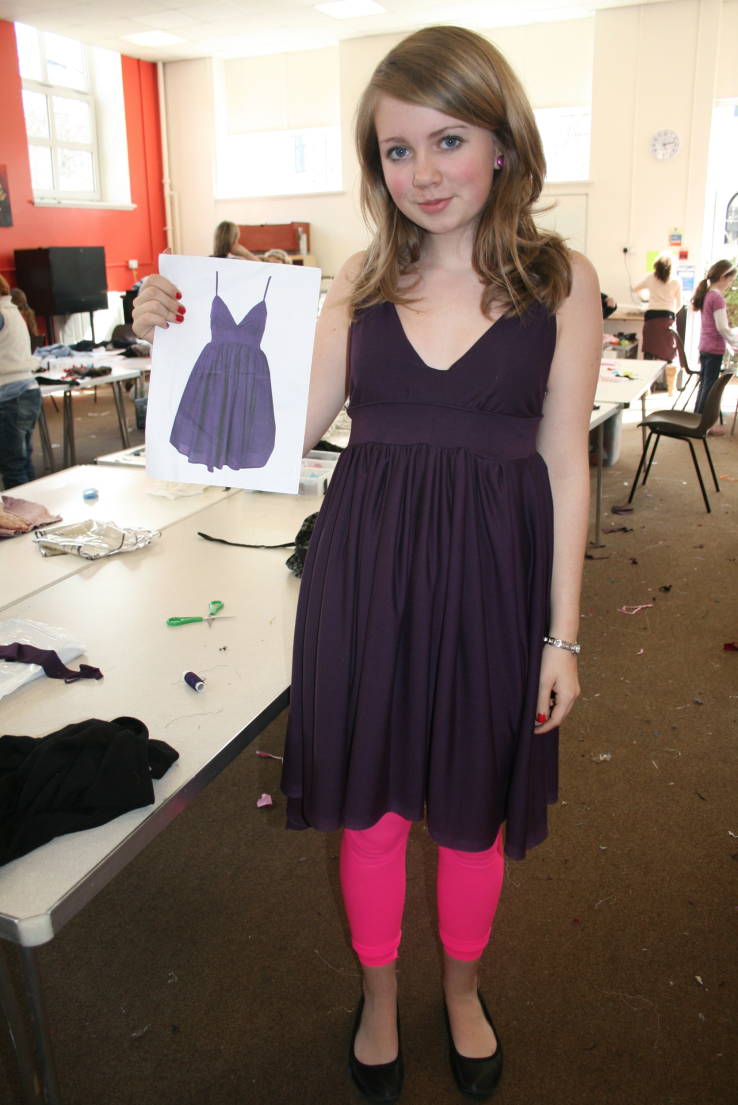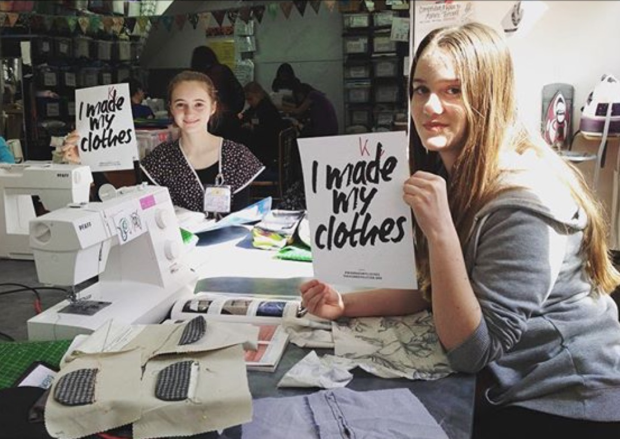“Forget retail therapy – at Little Hands Design the clothes you make are so much more personal and really fit than the ones you buy.. This is my new ‘ZEN-time!” A. 17 years
Consumerism is widely discussed, especially within the fashion industry. The negative consequences caused by consumerism and fast fashion impact the environment, so it’s important to promote sustainable fashion. However, that doesn’t mean the benefits of consumerism should be completely ignored.
“1.7 billion people worldwide now belong to the ‘consumer class’” otherwise known as “people characterized by…lifestyles devoted to the accumulation of non-essential goods” (Mayell). Large corporations encourage consumerism by convincing people “that in order to be happier… [they] have to have more stuff” (LifeSquared). After all, who doesn’t have an extra spring in their step after a satisfying shopping spree?

Little Hands version of Fendi Furballs, which cost £17 for the course fee to learn the skills to make them yourself
Many cultures promote high consumption rates by fostering “a cycle of wanting more things” (LifeSquared). Because consumers “are never happy with what [they] have,” they’re in “a state of constant dissatisfaction” (LifeSquared). As a result, people strive to display an image of perfection through material wealth. Unfortunately, no matter how pretty the picture may be, life is never perfect.
“As consumption increases…the resource base has to expand” (Shah). This is why “between 60-80 percent of the impacts on the planet come from household consumption” (Jacobs). Even though “eventually, the resources will deplete,” society continues to “discard faster and faster” (Plummer). However, there are many ways big companies can counteract their contribution to resource depletion. Simply donating leftover resources to smaller companies and recycling can make a big difference.

LHD student saw an expensive designer dress in a boutique she couldn’t afford, so she copied it and made it herself
Although there are negative consequences, consumerism does have clear benefits. It drives progress and innovation and boosts the economy by creating jobs and increasing the flow of money. These benefits are necessary for social growth, so although the nature and focus of consumerism should change, the practice should not be completely terminated.
“Fashion cycles are moving faster than ever…a trend dubbed ‘fast fashion’” (Tan). In the past, “Style changes occurred relatively slowly thus providing the consumer with time to adjust to such changes and to minimize costs” (Dardis). Nowadays, shoppers can go home with a hip new outfit and have it be obsolete within a week. The high speed of fast fashion trends causes consumers to shop more frequently to stay up to date, which leads to more clothing being discarded. Fortunately, the negative consequences of fast fashion don’t have to be catastrophic. In fact, there are several sustainable solutions: recycling, donation, and thrifting are both fashionable and environmentally friendly. With a little bit of creativity, you can make wear your grandma’s clothes and look incredible!
Focussing on sustainable fashion is necessary to counteract the consequences of fast fashion, but being environmentally conscious doesn’t have to mean being unfashionable. Rather, being sustainable in the fashion industry means “minimizing textile waste” and increasing clothing quality and durability (Somers). This reduces the negative effects of consumerism without condemning it by encouraging consumers to focus on quality over quantity.

Little Hands students joining the #whomadeyourclothes movement created by fashionrevolution
Little Hands Design participates in Fashion Revolution Day, which “brings people…together to use the power of fashion to change the story for the people who make the world’s clothes” (Fashion Revolution). The movement’s founders “believe transparency is the first step to transform the industry” (Fashion Revolution). When fashion companies are open about where they manufacture their textiles, they’re more likely to create higher quality products, which promotes sustainable fashion practices without eliminating consumerism.
Sustainable fashion movements like Fashion Revolution encourage reducing the environmental impact of consumption without eradicating the economic benefits of consumerism. Economic growth and environmental sustainability can be mutually exclusive: one doesn’t need to be sacrificed to benefit the other. Like most things in life, there just needs to be the right amount of balance.
